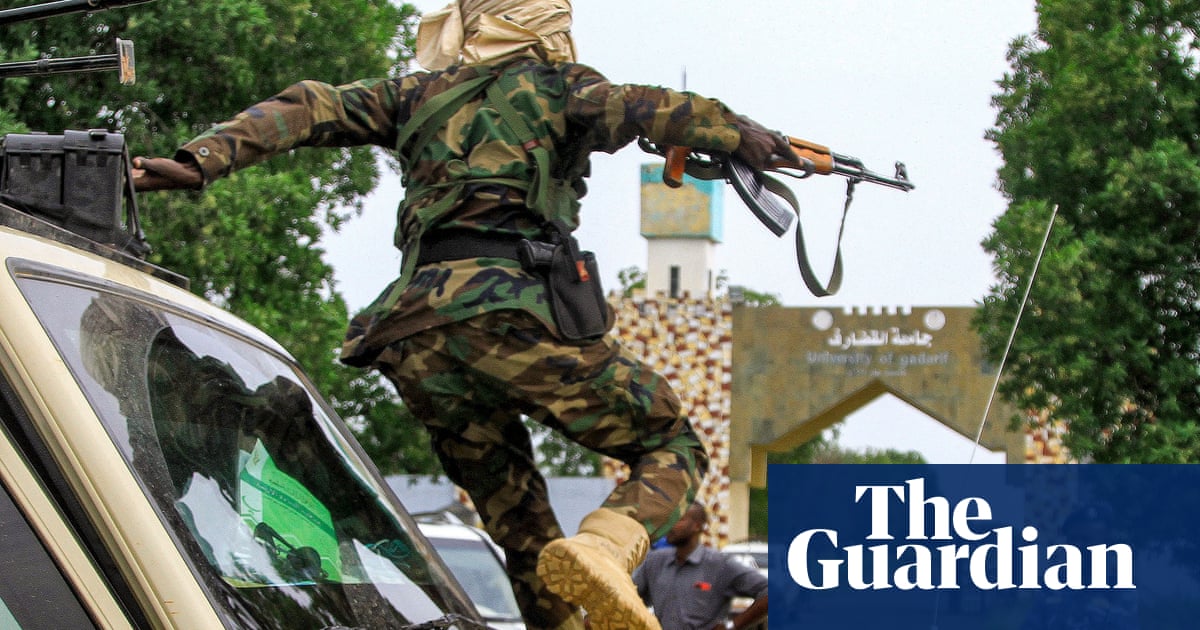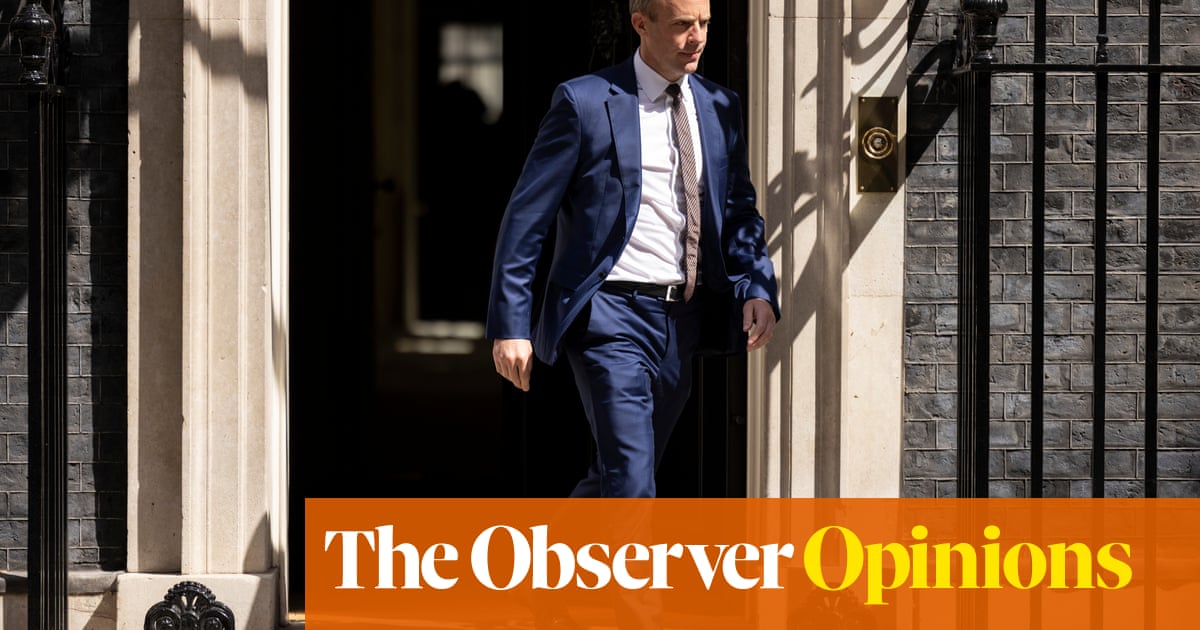
Iran has escalated its activities in the western hemisphere, with commercial jets ferrying military personnel and hardware in and Venezuelan bullion out. Five tankers carrying 1.5 million barrels of gasoline left Iran for Venezuela last month as the two pariah states, pummeled by US sanctions, seek to weather the turbulent waters of international isolation. The unobstructed realignment of the Tehran and Caracas regimes’ political and economic goals has highlighted the dwindling options the White House has beyond piling on more sanctions, since military interventions are a non-starter.
The premise for deepening ties now is simple. Venezuela needs gasoline and petrochemicals, and has plenty of gold — at least $6.7 billion worth. Iran has oil and much of what Venezuela needs to salvage the remains of an oil industry crippled by sanctions, lack of investment and corruption, but is starved of cash. The bungled US response to the coronavirus pandemic has revealed structural weaknesses across the domestic landscape, subordinating international cooperation on sanctions enforcement and the White House’s foreign policy agenda. An unintended consequence is the window of opportunity it gave Tehran to escalate its activities in America’s backyard— if only to supply excess gasoline piling up in Iranian storage facilities after lockdowns caused demand for fuel to plummet.
It is not the first time Tehran has meddled in South American affairs. Its relationship with Caracas dates from the 1960s, when both countries were founding members of OPEC. In the 1970s, Iran sought to align itself with communist regimes in Nicaragua and Cuba to thwart US influence in that region. Iran was at its most dangerous in the 1990s when its proxy, Hezbollah, was funding supplying terrorist mercenaries in the lawless tri-border region where Argentina, Brazil and Paraguay meet.
Venezuela issued hundreds of residency permits to Lebanese and Syrians, facilitated by Tareck El Aissami, Venezuela’s minister of petroleum, who has been indicted on narcotrafficking charges in the US. Tehran also sought to expand its influence in the 1990s and early 2000s by trying to broker alliances with Ecuador and Bolivia with the help of Hugo Chavez. At the peak of Iranian-Venezuelan relations, President Mahmoud Ahmadinejad was making frequent trips there and signed more than 300 agreements with Chavez.
The cordiality waned when Ahmadinejad left office and Chavez died. None of it resulted in any meaningful gains for Tehran, or arguably for Venezuela. The most troubling development, however, was the opening of flights between Caracas and Tehran, with a stopover in Damascus, in 2007. There were no security procedures or passenger/cargo screening, and none of the flights by Iran Air and Conviasa ever sold half their seats. In fact, it cost Caracas nearly $37 million over three years to run these flights but ticket sales only ever amounted to $15 million. Clearly, they were transporting more than just passengers.
Unsurprisingly, allegations surfaced in 2010 that Tehran was using these flights to import Venezuelan uranium and other materials for its nuclear enrichment programs, and was also selling phantom flight tickets to launder drug money, ferry Iranian-trained terrorists and facilitate narco-trafficking. Now, flights by Mahan Air have increased, coinciding with a $700 million drop in Venezuela’s central bank reserves. Imports of Iranian refinery chemicals have also increased Venezuela’s output from 110,000 to 215,000 barrels per day.
It is not the first time Tehran has meddled in South American affairs
Hafed Al-Ghwell
Both countries have been quick to hail the arrival of the gasoline tankers as a victory of sorts; the $45 million shipment is a welcome shot in the arm because with strict rationing, it could reap a $450 million windfall for the embattled Maduro regime. However, that obscures the underlying reality that once lockdowns are lifted and most of the world normalizes, Iran will lack the capacity to ferry that much fuel without severely affecting its domestic consumption.
Iran’s economy is shrinking so even support for Venezuela’s refinery capacity may end up dwindling, especially if Washington dispenses with condemnations and actually takes bold action against both countries flouting its sanctions. Should the White House fail to act, however, it could embolden Iran’s agenda in Venezuela, beyond propping up a broken oil industry or consultations with Iranian state security about cracking down on dissent.
Tehran has already proved adept at taking advantage of weak nations or governments, supplanting their sovereign will and entrenching itself to the detriment of those nations progress. With allegations of Iran’s influence in El Aissami’s ascendancy to Maduro’s Number 2 along with concerns that Caracas is seeking to establish a listening post to intercept aerial and naval communications in the region, it is possible Tehran is itching to plant itself firmly in Venezuela.
Intercepting communications and intelligence on enforcement agencies, personnel and assets operating in that region would benefit trafficking networks as well as organized crime — which have been used by Hezbollah to finance its military wing, as seen with the US Drug Enforcement Agency’s Operation Cassandra. The covert operation revealed how an expansive international program began with drug production in Venezuela and ended with about $200 million a month in a Lebanese bank —one of the largest support schemes for international terror ever seen.
Washington’s failure to respond to all this will probably encourage China and Russia to align themselves with Iranian plans, if only to safeguard their own interests, dooming Venezuela to the familiar fate of weak nation states divvied up in proxy battles fueled by geopolitical and ideological rivalries elsewhere.
• Hafed Al-Ghwell is a non-resident senior fellow with the Foreign Policy Institute at the John Hopkins University School of Advanced International Studies. He is also senior adviser at the international economic consultancy Maxwell Stamp and at the geopolitical risk advisory firm Oxford Analytica, a member of the Strategic Advisory Solutions International Group in Washington DC and a former adviser to the board of the World Bank Group. Twitter: @HafedAlGhwell
Disclaimer: Views expressed by writers in this section are their own and do not necessarily reflect Arab News" point-of-view












